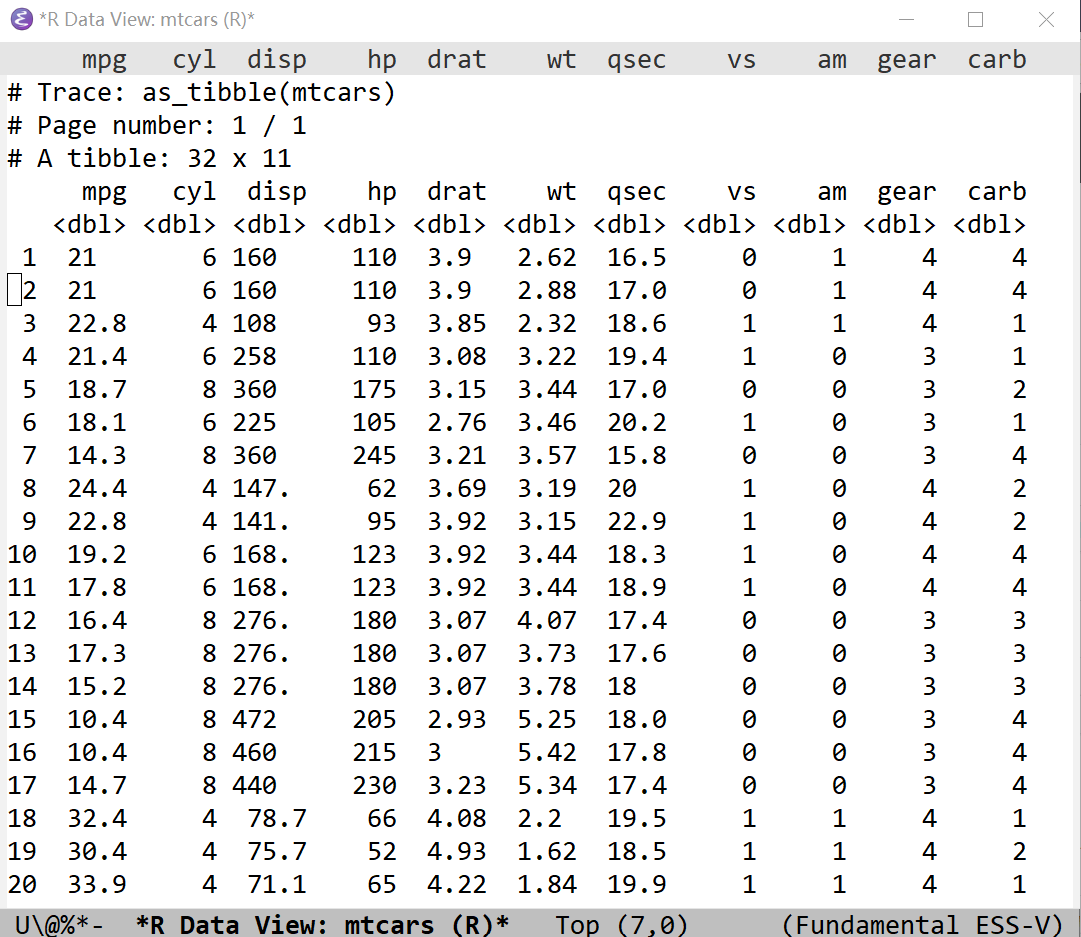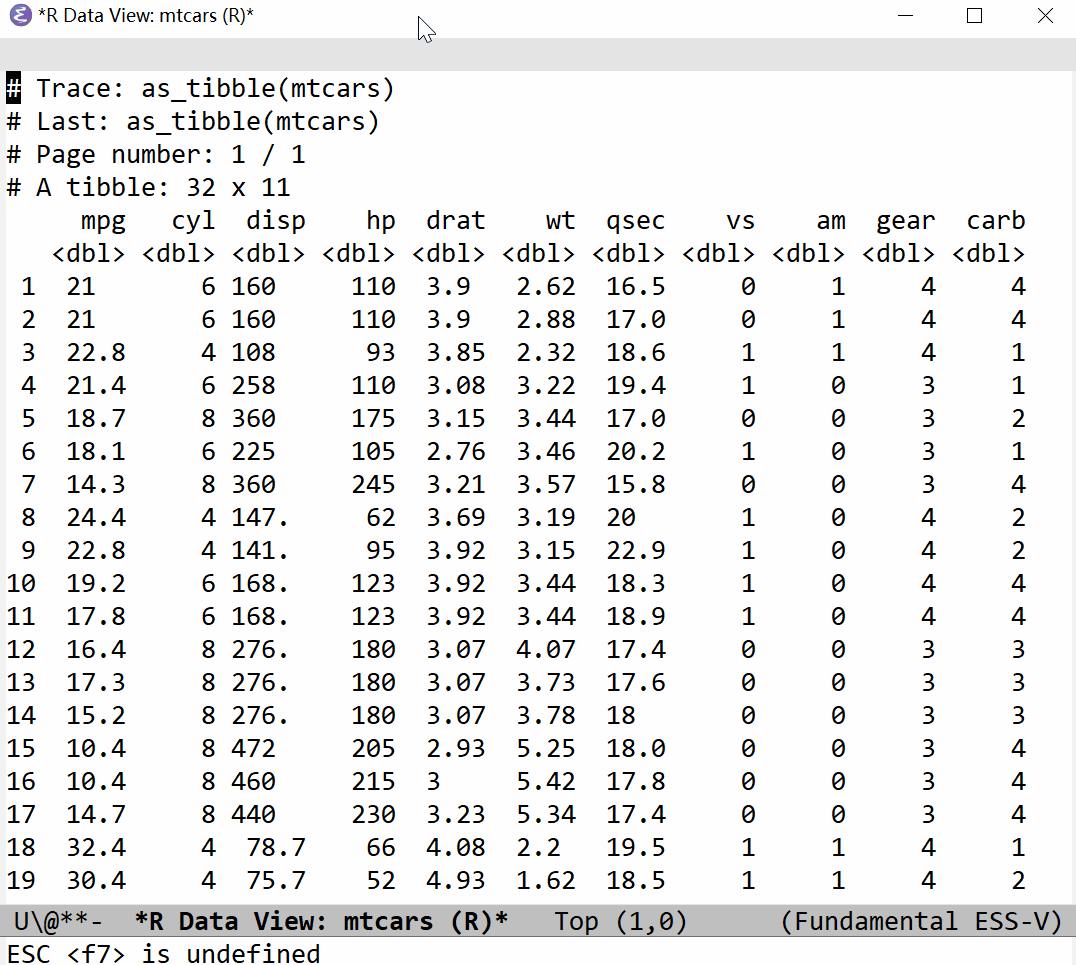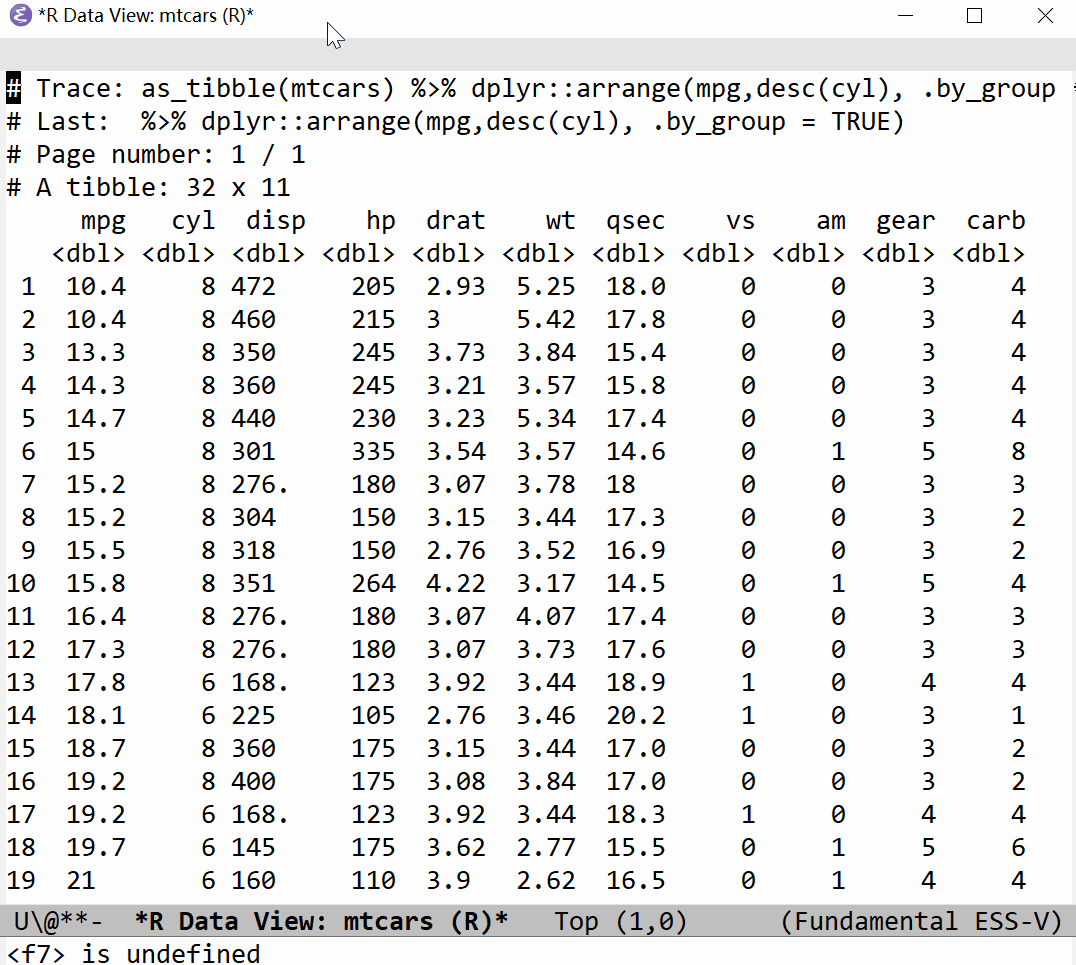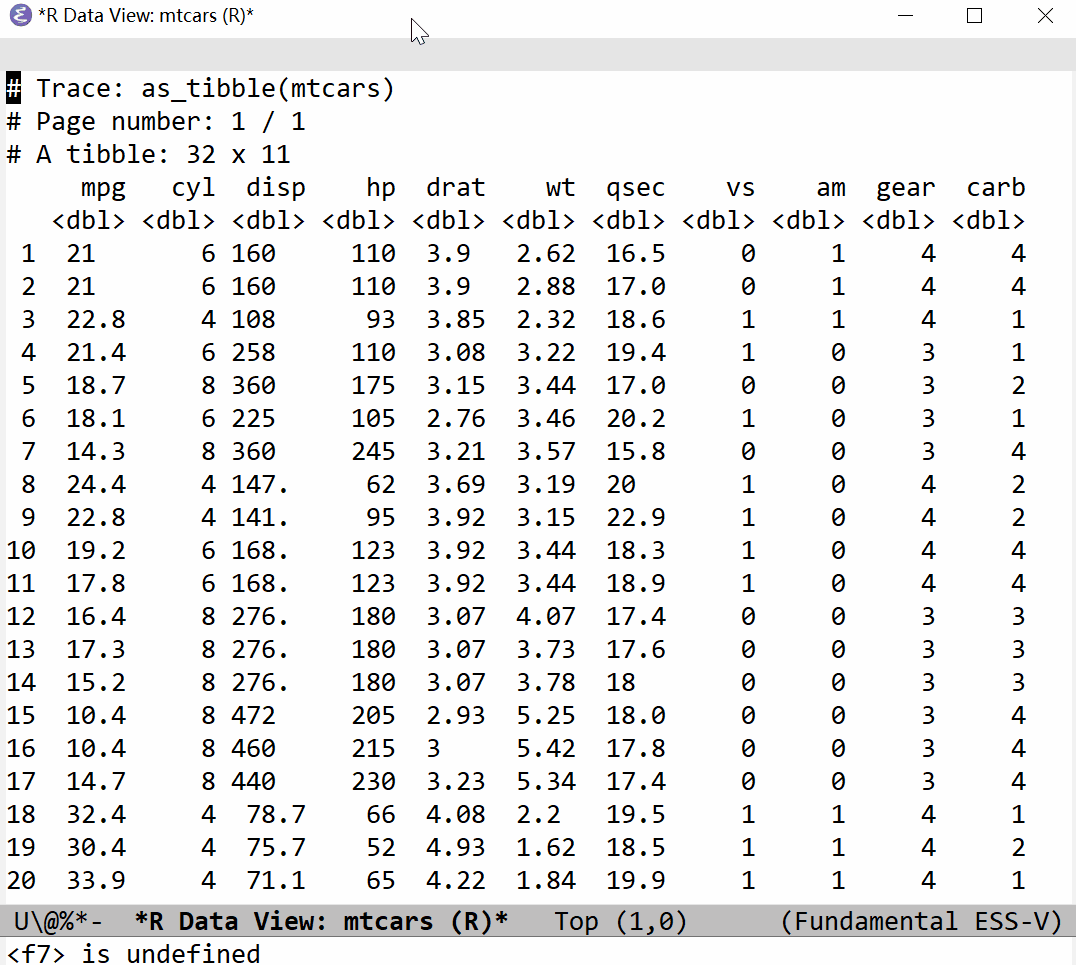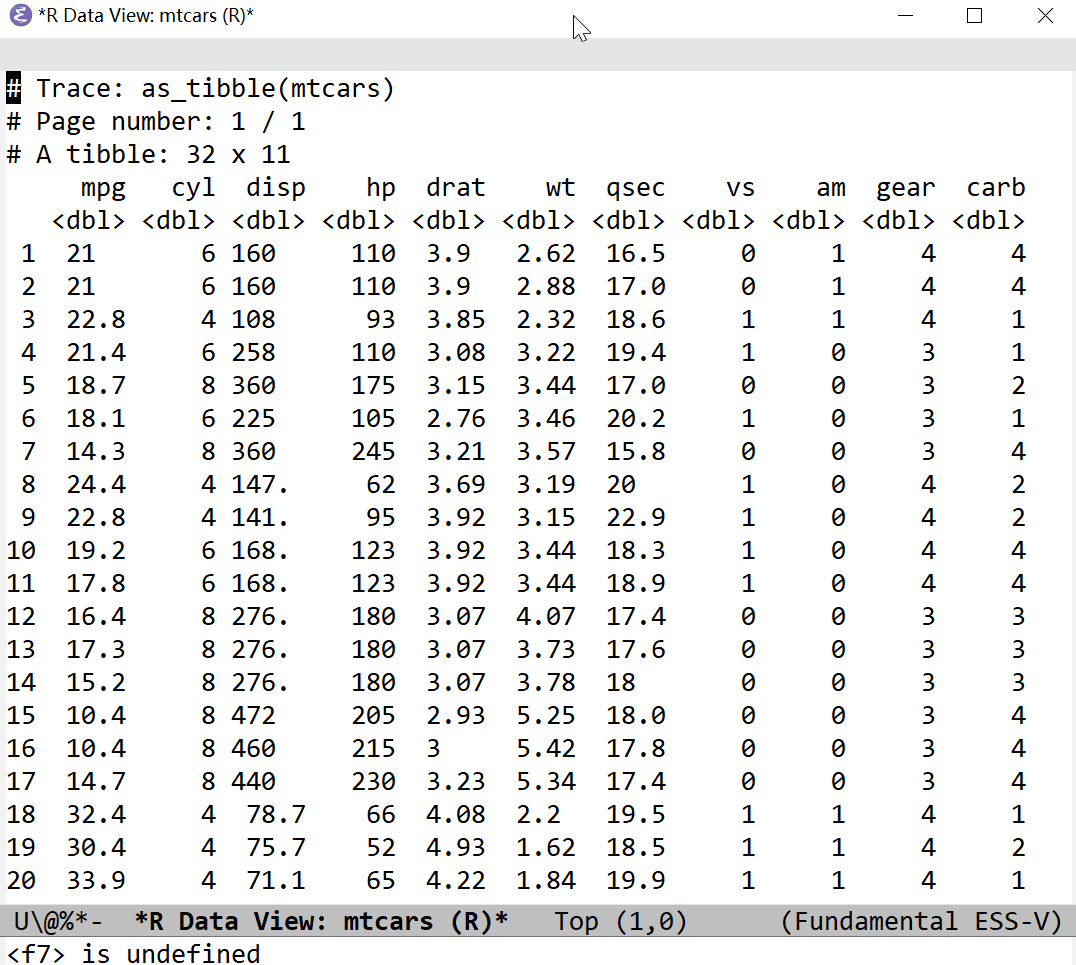To do tidyverse-like view and manipulate data in ESS and R.
Clone this repository, or install from MELPA. Add the following to your .emacs:
(require 'ess-view-data)Call ess-view-data-print, select a object whichever can be convert to a tibble or data.table depending on the backend, and then a buffer will pop up with data listed/printed. Further verbs can be done, like filter, select/unselect, mutate, group/ungroup, count, unique, summarise, and etc. It can be reset (ess-view-data-reset) any time.
To avoid mistaking break the orignial data, it will make a copy (e.g., as_tibble(dt) or as.data.table(dt)) as default.
If data.table is preferred, just set ess-view-data-current-backend to data.table+magrittr. Call ess-view-data-set-backend to change the backends.
It will put a head information at above:
# Trace: as_tibble(dt) %>% dplyr::filter(PARAMCD == "ORR", CYCLE == 1)
# Last: %>% dplyr::filter(PARAMCD == "ORR", CYCLE == 1)
# Page number: 1 / 1
# A tibble: 73 x 19- The 'Trace' line tracks the history of actions, and it can be copyed to the code after viewing. NB history of the operaitions can be found in buffer
*ESS*. - The 'Last' line records the last verb.
- The 'Page number' shows the current page/total number of pages.
- The 'A tibble' show the class and how many rows and columns in the tibble. NB, the 'dplyr' backend copies the data.frame to be a tibble first.
- dplyr (default)
- dplyr+DT (out of Emacs, using DT)
- data.table+magrittr
- print (default)
- kable
- write.csv (default)
- readr::write_csv
- data.table::fwrite
- kable
- jsonlite
- ess-completing-read (default)
- completing-read
- ido-completing-read
- ivy-completing-read
NOTE: it will make a copy of the data and then does the following action
The entry function to view data:
- ess-view-data-print
In a ess-r buffer or a Rscript buffer, M-x ess-view-data-print and input mtcars,
Setting:
- ess-view-data-set-backend: change backend
- ess-view-data-toggle-maxprint: toggle limitation of lines per page to print
Verbs:
- ess-view-data-filter
- ess-view-data-select / ess-view-data-unselect
- ess-view-data-sort
- ess-view-data-group / ess-view-data-ungroup
- ess-view-data-mutate
- ess-view-data-slice
- ess-view-data-wide2long / ess-view-data-long2wide
- ess-view-data-update
- ess-view-data-reset
- ess-view-data-unique
- ess-view-data-count
- ess-view-data-summarise
- ess-view-data-overview
- ess-view-data-goto-page / -next-page / -preious-page / -first-page / -last-page / -page-number
- ess-view-data-save
Utitlities:
In indirect buffer, for example, the buffer poped up when ess-view-data-filter is called
- ess-view-data-complete-object: complete or insert the name of one column/variable
- ess-view-data-complete-data: complete or insert the value of one column/variable
- ess-view-data-insert-all-cols: insert names of all columns/variables
- ess-view-data-insert-all-values: insert values of all columns/variables
- row.names support
- header-line

